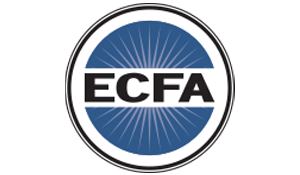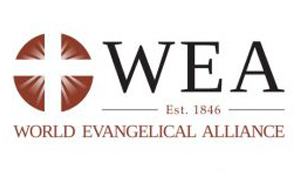History
The Beginning of Friends
 Friends, also known as Quakers, had their origin in seventeenth-century England. As a young man, George Fox longed for a genuine faith which he did not find in the cold, legalistic church of his time. He looked in vain for human help and studied the Bible so thoroughly that he learned much of it by memory. After four years of searching, he found inner peace through trusting Jesus Christ as his Savior. Soon he began to tell others about the Gospel of Christ as God’s way to free people from sin. As Fox shared the reality he had found, others responded and joined him in spreading the good news of salvation. Thus, a Spirit-led movement of genuine Christian renewal was born in 1647. They called themselves the Society of Friends, based on Jesus’ words to his disciples in John 15:14: “You are my friends if you do what I command.”
Friends, also known as Quakers, had their origin in seventeenth-century England. As a young man, George Fox longed for a genuine faith which he did not find in the cold, legalistic church of his time. He looked in vain for human help and studied the Bible so thoroughly that he learned much of it by memory. After four years of searching, he found inner peace through trusting Jesus Christ as his Savior. Soon he began to tell others about the Gospel of Christ as God’s way to free people from sin. As Fox shared the reality he had found, others responded and joined him in spreading the good news of salvation. Thus, a Spirit-led movement of genuine Christian renewal was born in 1647. They called themselves the Society of Friends, based on Jesus’ words to his disciples in John 15:14: “You are my friends if you do what I command.”
The Growth of Friends
A rapid period of growth began in June 1652 in northern England, which saw more than 60,000 people join the movement over a 12-year period. As is so often the case, this growth did not come without pain, and yet these early Friends remained faithful to their beliefs, even in the face of severe persecution. Many of them were put in prison for refusing to comply with requirements which they felt were contrary to the Gospel of Christ. Some Friends forfeited their property, and others were beaten, or even killed, because they took a stand for justice and freedom. This eventually earned them the nickname “Quakers,” a term of derision that was eventually accepted as a badge of honor.
Between 1654 and 1660, individual Friends from England had left a personal witness in more than 20 foreign countries. This pre-dated the modern missionary movement by more than a century. In the latter half of the 19th century, English and American Friends caught a vision of world need and since then have established missions in numerous countries. A number of those missions have now become indigenous churches. Although founded in Europe, the largest concentration of Friends in the world today can be found in east and central Africa.

The Evangelical Friends Church
The early leaders of the Friends movement never intended to create a formal church denomination, emphasizing the autonomy of the local meeting for worship and business. Therefore, no central authority was ever designed. Unfortunately, this created the opportunity for splintering in the generations that followed, which typically arose from significant theological differences. As a result, today one can find Friends who are very evangelical and participate in mainstream Christian thought as well as groups who use the name of Friends, or Quakers, yet disavow some of the primary tenants of orthodox Christian faith and practice.
 The Association of Evangelical Friends was founded in 1947 to provide a way for distinctively evangelical Quakers to forge a strategic partnership for the sake of Christ and His Kingdom. This loose-knit affiliation changed its name to Evangelical Friends Alliance in 1963 when its founding members adopted a constitution and by-laws. The name was later changed to Evangelical Friends International in 1989 to reflect the movement’s increasingly global constituency, and eventually took on its current identity as Evangelical Friends Church International in 2008.
The Association of Evangelical Friends was founded in 1947 to provide a way for distinctively evangelical Quakers to forge a strategic partnership for the sake of Christ and His Kingdom. This loose-knit affiliation changed its name to Evangelical Friends Alliance in 1963 when its founding members adopted a constitution and by-laws. The name was later changed to Evangelical Friends International in 1989 to reflect the movement’s increasingly global constituency, and eventually took on its current identity as Evangelical Friends Church International in 2008.






